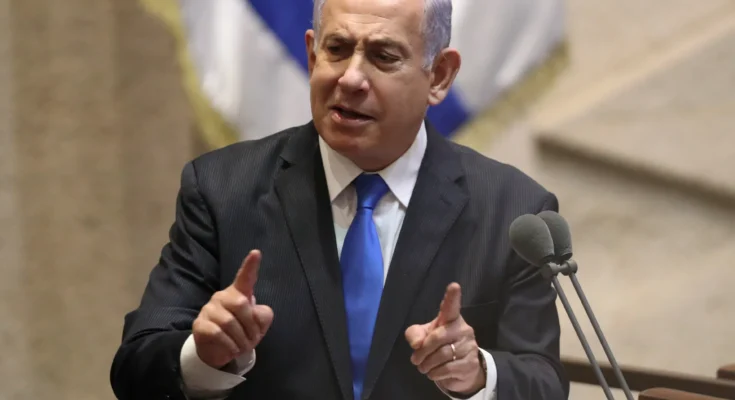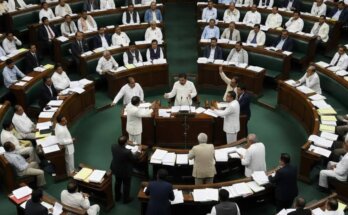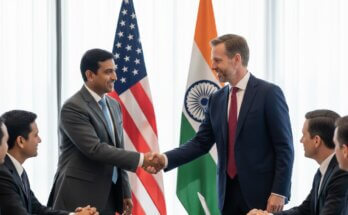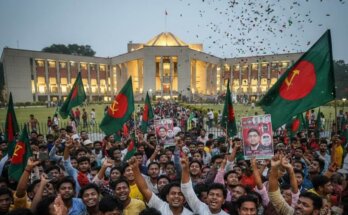Israeli Prime Minister Benjamin Netanyahu has announced that Israel will take full military control of Gaza, but without a long-term occupation or governance role. This latest development in the ongoing Israel–Hamas conflict has reignited international debate over security, sovereignty, and the future of the Palestinian enclave.
As Gaza faces one of the worst humanitarian crises in modern history, Netanyahu’s statement—”We will control Gaza, but we do not want to govern it”—raises urgent questions:
-
Who will administer Gaza post-conflict?
-
What does “control without occupation” really mean?
-
How does this shift affect regional peace prospects?
A Recap of the Gaza Conflict
The current Israel–Hamas conflict escalated in late 2024 after renewed hostilities, sparked by cross-border attacks and regional tensions. Over the past 10 months, the war has resulted in:
-
Tens of thousands of casualties, including civilians
-
Complete destruction of infrastructure in northern Gaza
-
Blockades on food, fuel, and medical aid
-
Mass displacement of over 1.2 million Gazans
Despite multiple international ceasefire efforts, the violence has continued.
Netanyahu’s New Strategy: Key Takeaways
In a recent cabinet meeting, Netanyahu outlined Israel’s future goals for Gaza:
-
Full military and security control over Gaza
-
No return of Hamas to power
-
No long-term occupation or governance role for Israel
-
Creation of a secure perimeter around Gaza
-
Search for a third-party administration (possibly Arab or international)
This marks a departure from earlier Israeli policies, which have generally aimed to contain rather than reoccupy Gaza militarily.
What Does “Control Without Occupation” Mean?
This phrase has drawn criticism and confusion in equal measure.
Control =
-
Maintaining Israeli military presence
-
Conducting operations as needed
-
Overseeing entry/exit points and airspace
-
Disarming any remaining militant groups
Without Occupation =
-
No civil governance
-
No Israeli-run schools, hospitals, or police
-
No tax collection or infrastructure development
-
A hands-off approach to daily life (at least in theory)
Critics argue this amounts to de facto occupation without responsibility, a position that could violate international law.
The Humanitarian Toll: A Crisis Deepens
The cost of prolonged conflict and blockade is staggering:
-
Hospitals shut down due to fuel shortages
-
Food insecurity has reached famine-like conditions
-
Over 80% of Gaza’s population displaced
-
Children suffering from severe malnutrition
International NGOs have warned that Gaza is “on the brink of collapse”. Aid deliveries remain blocked or minimal, and the risk of disease outbreaks is growing.
“This is not just a war zone — it’s a humanitarian black hole,” said a UN representative.
International Response: Divided Yet Alarmed
🇺🇸 United States
The Biden administration supports Israel’s right to self-defense but has urged restraint and called for a “clear endgame strategy.” Washington is reportedly skeptical of Israel’s plan to control without governing.
🇪🇺 European Union
EU officials have condemned the humanitarian crisis and demanded an immediate ceasefire. They are exploring options for a multinational civil administration, possibly involving the UN or Arab League.
🇸🇦 Arab States
Egypt, Jordan, and Saudi Arabia have all rejected any role in administrating Gaza unless there’s a viable path to a Palestinian state.
🇺🇳 United Nations
The UN has called the situation “unprecedented” and is pushing for:
-
Immediate humanitarian corridors
-
A long-term political solution, including two-state negotiations
-
International oversight of post-conflict Gaza
What Do Palestinians Say?
Palestinian Authority officials have denounced Netanyahu’s proposal as a “land grab in disguise.” Many Palestinians fear:
-
Permanent Israeli military rule
-
Loss of political autonomy
-
A future without statehood or self-determination
On the ground, Gazans are more concerned about survival than politics—but frustration is mounting. Without a credible path forward, radicalization could deepen among displaced youth.
Who Could Govern Gaza If Not Israel?
This is the biggest open question. Potential options include:
1. The Palestinian Authority (PA)
The most likely—but politically weak—option. The PA is unpopular in Gaza and seen as corrupt and ineffective.
2. Arab Peacekeeping Force
Led by Egypt, Jordan, or Saudi Arabia. But all have so far refused.
3. UN Mandate or Trusteeship
Could include UNRWA, UNICEF, and international peacekeepers. Complex and controversial.
4. Joint Israel–Arab–International Oversight Board
Theoretically possible, but extremely difficult to negotiate.
Strategic Motives Behind Netanyahu’s Statement
Political analysts suggest several reasons behind Israel’s new stance:
-
Domestic politics: Netanyahu faces pressure from hardliners demanding security guarantees and from moderates seeking a path to peace.
-
International legitimacy: A strategy that avoids “occupation” may reduce backlash.
-
Long-term deterrence: Full military control may discourage future attacks from Hamas or other groups.
Risks and Consequences
-
A power vacuum could lead to chaos or the rise of even more extreme factions.
-
International backlash over humanitarian conditions may isolate Israel diplomatically.
-
Security instability could persist for years without a clear governance plan.
-
The two-state solution could become even more distant.
Conclusion
Netanyahu’s new Gaza strategy—control without occupation—is both bold and controversial. While it may meet short-term security goals, it leaves many questions unanswered about who governs Gaza, how peace can be achieved, and how millions of Palestinians will live with dignity and safety.
Without a credible long-term political solution, the strategy risks deepening the cycle of violence, alienating allies, and leaving Gaza in limbo.
FAQs
Q1: Is Israel reoccupying Gaza?
No official occupation is declared, but Israel plans full military control while avoiding civil governance responsibilities.
Q2: Who will govern Gaza under this plan?
It’s unclear. The Palestinian Authority, UN, or a coalition may be considered, but no agreement exists.
Q3: What’s the humanitarian situation in Gaza?
Dire. Severe shortages of food, water, medicine, and shelter have created a catastrophic crisis.
Q4: How has the world responded?
Reactions are mixed. Allies urge caution, while global institutions and NGOs demand a ceasefire and political resolution.




